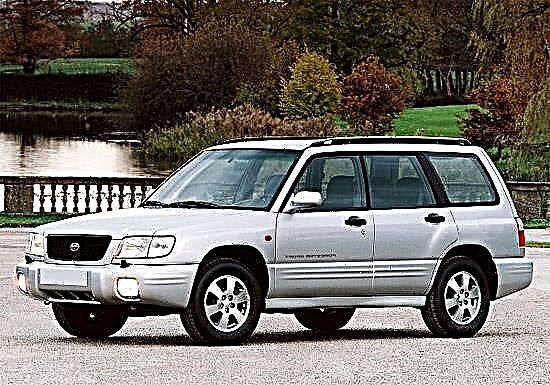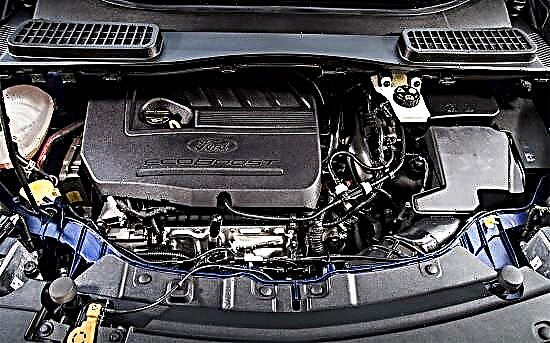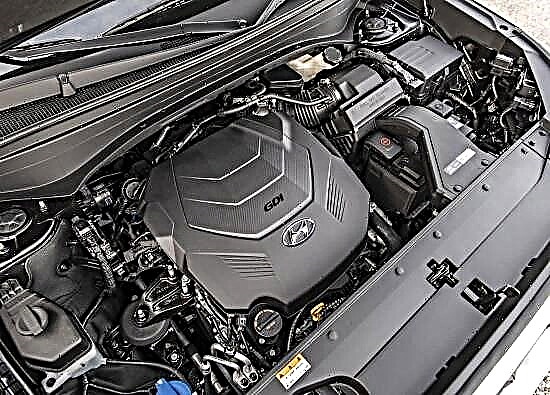Ratings of cars and auto products
Reviews, comparisons & tips for motorists
The benefits and effectiveness of automotive additives can be argued indefinitely. At the same time, few people have any doubts that fuel additives really work and bring certain benefits to the best of their ability.
Hi-Gear Oktan Plus
The demand for additives is driven by the poor quality of the fuel at many filling stations. In order to somehow compensate for this shortcoming, a certain amount of special auto chemistry is often poured into the fuel tank. It is aimed at solving various problems, including increasing the octane number.
The question remains open about which additives to use, why they are needed at all and what to pay special attention to when buying such auto chemicals, so as not to cause additional damage to the car.
Why are additives added to the fuel?
Quite a relevant and fair question, the answer to which many motorists still cannot get. Not everyone fully understands for what purposes some other liquids are added to gasoline. Many are afraid of harming the fuel system and the engine itself. Others confidently buy small bottles and fill their contents into the tank before visiting the gas station.
At its core, gasoline should be viewed as a mixture of hydrocarbons, which is obtained by processing gas condensates and oil. But this is not enough to ensure the desired performance and fuel efficiency. Therefore, in addition, special additives are included in the composition. Moreover, there is a fairly extensive list of them.
With the help of additives or additional chemical components, the fuel becomes more resistant to detonation, its volatility decreases, etc. That is, the action of the additives is aimed at improving the technical and physicochemical characteristics.
However, it is extremely important that the additives meet certain requirements and conditions. Namely:
- did not contribute to the appearance of harmful deposits inside the fuel supply system;
- reduced the intensity of carbon deposits in the combustion chamber;
- did not contribute to strong carbon formation in the exhaust channels;
- increased the environmental friendliness and safety of combustion products, that is, exhaust gases.
Each fuel manufacturer nominally introduces a certain additive package, which is regulated by regulatory documents. The main one is considered to be the current GOST.
SGA Suprotek
If all companies strictly followed the rules, there would be no need to use additives. But often the fuel poured at gas stations does not meet the requirements that are prescribed in state standards.
The reasons for this are different, ranging from deliberate savings and the use of cheaper additives, ending with violations of the rules for storing fuel directly at the points of sale, that is, at gas stations.
There are several main reasons why motorists are sometimes forced to use additional sets of additives, collected in one small bottle with a special liquid.
- Too low octane number of gasoline at the gas station. The lower this indicator, the worse the detonation resistance. In the best hands, a decrease in octane leads to a drop in engine power. In the worst case, you can face burnout of pistons and valves. As a result, this will result in expensive repair and restoration work.
- The presence of resins and other harmful components in the composition. Everyone is well aware of the consequences. Here we are talking about contamination of the fuel line, a decrease in the combustion efficiency of the air-fuel mixture, as well as accelerated wear of catalysts in cars. Soon it will be necessary to clean the fuel system. And the worse the fuel is, the more often such a procedure is carried out.
- Water ingress into the tank. If there is a lot of moisture in the fuel tank, this leads to such consequences as twitching of the engine, problems with starting, floating idle speed, etc. In severe frosts, the fuel can freeze or cause freezing of the fuel line. Plus the eternal problem of water and metal in the form of corrosion.
In fact, we can say that the additive improves the properties and quality of the fuel, increases the detergent effect and helps to get rid of old carbon deposits.
Types of additives and their features
Now you need to figure out which additives are added to gasoline and what their use leads to. Additives differ in their composition and characteristics, as well as in production technologies.
Therefore, the concept of fuel additives for gasoline is rather general and rather arbitrary, since they are divided into corresponding subcategories with characteristic strengths and weaknesses.
Virtually all existing fuel additives that motorists add to gasoline can be broken down into 4 categories:
- cleaning fuel additives;
- drying additives;
- fuel catalysts;
- universal fuel additives.
Each category should be considered separately in order to better understand what benefits and additional opportunities certain types of supplements can provide.
Cleansing group
Quite often, motorists are interested in a special additive designed to clean a clogged fuel system. She, like most others, is simply poured into gasoline before or after visiting a gas station.
Such auto chemistry serves to remove the formed carbon deposits and get rid of the tar that settles on the surfaces of the elements of the fuel system. Therefore, detergent additives are quite rightly and justifiably poured into gasoline in order to clean the injector, flush the nozzles, etc. You should not rely on the fact that refueling with proven fuel will not lead to similar consequences. This is true for all vehicles and any fuel systems. The higher the quality of the fuel, the longer you will not encounter carbon formation problems. That's all.
The increased smoke of the exhaust is often caused precisely by a strong blockage of the fuel system and the injector, or the carburetor. And so that the car engine does not smoke, an appropriate additive is often used in gasoline with an allegedly excellent anti-smoke effect. There are other situations when the corresponding specialized additives are added to gasoline to decarbonize the piston rings.
Castrol TBE
Any additives-cleaners are aimed primarily at prevention, but not at the elimination of serious blockages, heavy carbon deposits and a large amount of resins. If the car has traveled more than 100 thousand kilometers, never even using preventive additives before, the fuel system will most likely need serious cleaning. And a simple filling of auto chemistry will not help. Sometimes it backfires. Soot particles and carbon deposits knocked down by the additive can get into the fuel, clog the filter, provoke the failure of injectors, etc.
The cost of the additives is quite low. Especially when compared to a professional engine cleaning procedure. Therefore, many motorists want to save money by solving the carbon deposit problem by using chemicals.
If you use an additive, then only for preventive purposes and to combat pollution in the early stages. With the help of high-quality formulations, you can significantly extend the life of the injector without cleaning. But such an effect can only be obtained if high-quality formulations are regularly used.
As for the specialized cleaning and detergent additives, which are supposedly created specifically for de-coking rings or cleaning injectors, this is more of a marketing ploy. All cleansing additives have a similar composition and the same principle of action.
As a preventive measure, detergent additives work well. If the pollution is serious, the carbon layer is impressive, first a professional cleaning is carried out, and after that the additives are poured so that the situation does not repeat itself.
Lavr oktane plus
Desiccant group
Quite often, to save money or simply due to a violation of the storage technology, water is found in the fuel. And then the developers of auto chemistry begin to offer their additives designed to dry gasoline.
The essence of the additives is to remove excess moisture from the fuel composition. It gets there in the form of condensation, when refueling at poor gas stations, as well as due to natural processes and high humidity levels in winter.
It is hardly worth reminding that there should be no water in the fuel, and it is potentially very dangerous. This is a direct threat to engine integrity. If there is a lot of water and it freezes, then there is a risk of damage to the filters and the fuel system.
Using dehumidifiers is a controversial undertaking. And now you will understand why. The vast majority of such additives include up to 90% alcohol, as well as some absorbent and other components. Unlike cleaning products that have proven effective, there is little to no use in dehumidifiers. Their effectiveness is extremely low.
The additive is often capable of removing no more than a few percent of moisture. There will be no harm from them if used periodically for preventive purposes and in moderation. But relying on dehumidifiers as a panacea is not worth relying on if the gasoline is heavily flooded. It is much more correct in such a situation to simply drain the bad fuel and call in a good gas station. The possibility of a water hammer cannot be ruled out, which can permanently disable the motor.
Group of catalyst additives
Often, motorists are interested in the increase in octane when additives added to gasoline are purchased. They are positioned as a means to improve the quality of fuel. They are also called octane correctors.
If we start from the descriptions of the goods and the recommendations of the manufacturer, then everything looks extremely promising and promising. But this is debatable.
But drivers should know if it is profitable to buy additives that are added to gasoline that are designed to increase the octane number. The manufacturer indicates that their additives reduce the level of fuel consumption and at the same time increase the power of the power unit.
If you look at the composition, most of these additives will consist of a monohydric alcohol, a carbon allotrope, and various ethers. These are the same components that are included in the most popular grades 92 and 95 sold at gas stations.
Therefore, a natural question arises as to whether it is worth buying additives for gasoline, which are designed to increase its quality. Here you need to look at some conventional numbers.
Injection Reineger Light
One bottle of the additive is usually designed to improve the characteristics of 100-200 liters of fuel, that is, by 2-4 full tanks. But the supplement does not cost so little, which increases the costs of the motorist. The fuel itself is cheaper. Tests and tests prove that instead of the promised increase of 5-7 octane units, in fact we get about 2-3. Because of this, the purchase of most octane correctors is financially impractical. Instead of refueling at dubious gas stations and compensating for the low quality by adding additives, it is better to initially call in a good gas station.
It is rational to use fuel catalysts only in situations when bad fuel has been poured into the fuel tank, and it will not be possible to replace it or add another in the near future. Although ideally it is worth draining the bad fuel and refueling at a good gas station. Before doing this, it is recommended to additionally clean the fuel system.
Although some really high-quality and effective solutions cannot be ruled out. There are not many of them on the market, but they are.
Group of universal additives
Here we are talking purely about the marketing course, which is successfully used by manufacturers of automotive chemicals. Moreover, self-respecting companies will never offer additives that can supposedly solve all problems in one bottle.
According to the assurances of the manufacturers, universal additives are designed to simultaneously clean the fuel system, increase the octane number, remove moisture, etc.
Whether to buy them or not is up to everyone personally. But it is hardly worth counting on the fact that one bottle contains reference components capable of such an effect. This is despite the fact that there are no highly effective special-purpose additives. What can we say about universal development.
Dry Fuel Petrol
Rating of effective fuel additives
Given the fact that the assortment on the shelves of car dealerships is huge, but not all additives live up to their promises in terms of efficiency and benefits, motorists have to be very careful when choosing them.
To simplify the task of buying a high-quality and effective product, an appropriate rating was compiled. It covers a relatively small list of additives. But it was they who received the highest consumer ratings and positive reviews.
- Supremium from Wynns. Oddly enough, but the rating even got a universal remedy. It is one of the few manufacturers that offers truly quality supplements. Maybe the tool does not work as effectively as the manufacturer claims, but there is benefit. This is especially true for increasing the resource of the engine and reducing the toxicity of the exhaust gas.
- Fuel Dryer by Sintec. A good dehumidifier with proven performance. At the same time, it is quite cheap. Serves strictly to remove excess moisture. The manufacturer does not promise anything else.
- Dry Fuel Petrol. Again a dehumidifier, but already of domestic production by Lavr. Decently neutralizes water in fuel. Works well, is cheap. But it is suitable purely as a prophylactic agent.
- SGA Suprotek. Multifunctional additive of the cleaning type, focused on gasoline engines. Protects injectors and injectors from wear, has anti-corrosion properties. Recommended for use as a prophylactic additive.
- TBE from Castrol. This is a product for anti-corrosion protection, anti-icing agent, remover of harmful deposits on injectors, etc. The additive does not increase the octane number, although some vendors say otherwise.
- Injection Reineger Light. The manufacturer is the leading manufacturer of autochemistry Liqui Moly. Cleansing type additive. The manufacturer advises to use it for prevention.
- Oktane Plus by Lavr. Additive for improving the quality of fuel and increasing the octane number. The real increase is no more than 5-6 units. Its effectiveness has been proven in practice.
- UMT from the Totek company. Here we are talking about a motor fuel booster. Domestic development in the form of a fuel catalyst. Users note that after using the additive, the quality of fuel combustion increases, the engine temperature drops, and excess moisture leaves the tank.
- Octane Plus by Liqui Moly. From the name it is clear that this is an octane corrector. It performs well in situations where low-quality fuel gets into the tank.
- Octane Plus manufactured by Hi-Gear. The most popular additive among domestic motorists, which is produced in the United States and acts as a purifier. Real tests have proven the ability to reduce fuel consumption by 5-7%. The octane number also rises.
Whether to trust these additives or not is a matter for each motorist personally. But it is definitely not worth it to experiment on your car, pouring all the additives in a row into the fuel tank.
Additives, even if used purely for prophylaxis, should be applied as needed, in accordance with the manufacturer's instructions. Otherwise, instead of a positive effect, you can face negative consequences.
Wynns Supremium
Hazardous and harmful additive components
There are additives and their individual components that can do more harm than good. Therefore, when buying auto chemical goods, carefully read the composition and pay attention to the presence of substances that will be listed below.
- For a start, you should exclude ethyl or tetraethyl lead. Such a substance helps to reduce the smoke of the engine and increases its power. It also affects the quality of the fuel, reducing its detonation. But it is also a dangerous poison for the body. Therefore, even contact with the skin can lead to extremely sad consequences.
- Ethanol or just alcohol is considered no less harmful. Its addition to the fuel contributes to an increase in the octane number and the efficiency of the motor in general. But if you abuse alcohol, the gaskets will quickly collapse. Excessive dosage has the opposite effect in the form of a drop in octane number. Additionally, valves will knock, and detonation will begin.
- It is not recommended to use naphthalene, which mainly serves as an octane booster. But it also provokes the development of cancer. Plus increases the volume of harmful exhaust, promotes the active formation of carbon deposits. Heavy use will result in clogged filters and clogged hoses.
- Acetone or the more complex name methyl butyl ether. On the positive side, the ability to increase the octane number while maintaining the correct dosage can be noted. But this component is originally part of the fuel produced by the factories. Adding more, you can provoke the opposite effect of a drop in octane number, as well as lead to the formation of a huge amount of harmful organic compounds.
- Take a closer look at a substance like manganese. Yes, it can raise the octane number. But if you use it for a long time and incorrectly, you will soon have to change the converter, buy new spark plugs, solve the problem of a drop in power and thick gray smoke from their exhaust pipe.
- Ferrocene is also included in the number of harmful substances. Again it is used to increase the octane number. But it is precisely because of it that an impressive layer of red carbon appears on the candles and on the surfaces of the cylinders. Leads to an overall reduction in the resource of the power unit.
- It is also worth excluding various aromatic carbohydrates, including such substances as toluene and benzene, which supposedly can raise the octane number by 10 units at once. But these components are characterized by a murderous soluble ability. Therefore, soon you will have to say goodbye to all elastic seals, rubber bands, gaskets, etc. In parallel, substances act as catalysts for corrosion.
As you can see, many additives that have high octane enhancing properties come with serious drawbacks in practice.
Prisadka Totek UMT
And if you can still accept some harmful effects on the engine or fuel system, then it is absolutely impossible to allow the use of additives that are harmful and dangerous to human life.
The use of fuel additives is an individual matter for each car owner. Anyone who wants to can safely pour different liquids into the fuel tank. If you consider them harmful and dangerous, no one will force you to change your mind and attitude towards additives.
But those drivers who want to get a decent effect from pouring a package of additives in the form of a small bottle must first make sure of their quality, purpose and necessity in relation to the current situation. If the fuel system is dirty, the injectors are clogged up enough, it is much more correct and logical to first carry out professional cleaning on special equipment. And in the future, you can fill in a strictly regulated amount of additives, so as not to repeat the situation, or simply increase the period when the next professional flushing is required.
As for the octane correctors, there are much more doubts about them. A worthy and sometimes financially more profitable alternative would be a visit to proven gas stations that sell high-quality gasoline. But the bottle with the additive can be thrown into the glove compartment, so that in an emergency, when you have to refuel with low-quality fuel, you could at least slightly adjust the composition.











